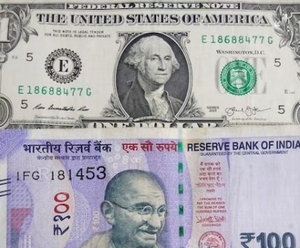Counting of votes begins today for Maharashtra, Jharkhand Assembly polls
New Delhi, Nov 23 (IANS/WISHAVWARTA) All eyes will be on the much-awaited counting of votes for the Assembly elections in Maharashtra and Jharkhand, which will begin at 8 a.m. on Saturday.
Early trends are expected to trickle in by 9 a.m., offering the first glimpse into the outcome of these high-stakes battles.
Results of the bypolls held across 48 assembly constituencies and two parliamentary seats in 13 states will also be declared on Saturday.
The BJP, buoyed by its performance in Haryana’s Assembly elections after setbacks in the Lok Sabha polls, is eyeing a decisive win in Maharashtra and Jharkhand.
In Maharashtra, the party is allied with the Ajit Pawar faction of the NCP and the Eknath Shinde-led Shiv Sena.
Meanwhile, the Congress and its INDIA bloc allies are aiming to retain Jharkhand and wrest power from the ruling MahaYuti alliance in Maharashtra.
Adding to the drama, results will be declared for 48 Assembly bypolls and two high-profile parliamentary constituencies: Nanded in Maharashtra and Wayanad in Kerala.
Wayanad is also a prestige battle for the Congress, with Priyanka Gandhi Vadra’s electoral debut in focus after her brother Rahul Gandhi, who previously represented the constituency in the Lok Sabha, vacated the seat.
The 288-seat Maharashtra Assembly witnessed a single-phase election on November 20, with voter turnout at 66.05 per cent. While urban centres like Mumbai recorded a lukewarm 52.65 per cent turnout, tribal-dominated Gadchiroli led with 70 per cent.
The ruling MahaYuti alliance, consisting of Eknath Shinde-led Shiv Sena, the BJP, and Ajit Pawar’s NCP faction, is vying for a second term. On the other hand, the opposition Maha Vikas Aghadi (MVA) — a coalition of Congress, Shiv Sena (UBT), and Sharad Pawar’s NCP–put up a tough fight to stage a comeback.
Key seats in focus include Worli, where Shiv Sena (UBT) scion Aaditya Thackeray, the incumbent, faces Shinde Sena’s Milind Deora. In Baramati, it’s a family showdown between Ajit Pawar and his nephew Yugendra Pawar from the NCP (SP). Deputy Chief Minister Devendra Fadnavis may face a tough challenge from Congress candidate Prafful Gudadhe in his stronghold of Nagpur South West.
The BJP emerged as the largest party in the 2019 elections, winning 105 seats. Together with its then-ally Shiv Sena, it secured a majority of 161 seats. However, Shiv Sena broke ties with the BJP and joined hands with Congress and NCP, creating the Maha Vikas Aghadi government with Uddhav Thackeray as Chief Minister. The MVA coalition’s tenure ended in 2022 after a rebellion by Eknath Shinde, who formed the government with BJP’s support.
Three exit polls predict that the MahaYuti alliance is likely to return to power for a second term, securing around 158 seats, comfortably above the majority mark of 145 seats.
Jharkhand’s two-phase elections, held on November 13 and 20, saw a record turnout of 67.74 per cent, the highest since the state’s creation in 2000.
The ruling INDIA bloc, led by the Jharkhand Mukti Morcha (JMM), is striving to retain power for a second term. The BJP-led NDA, however, is determined to wrest control, leveraging anti-incumbency and corruption allegations.
Jharkhand witnessed high-octane campaigning, with the BJP accusing the JMM-led government of corruption and appeasement politics, while Chief Minister Hemant Soren’s coalition countered with welfare promises and criticism of the alleged misuse of central agencies.
Key constituencies to watch include Barhait, where Chief Minister Hemant Soren faces BJP’s Gamaliyan Hembrom, and Gandey, where his wife Kalpana Soren is up against BJP’s Muniya Devi. In Seraikella, Champai Soren, a former JMM leader, clashes with Ganesh Mahali, a BJP defector now with the JMM. Meanwhile, Jamtara will see a high-profile contest between Congress leader Irfan Ansari and Sita Soren, Hemant Soren’s sister-in-law.
Assembly bypolls across 13 states, including Uttar Pradesh (9 seats), Rajasthan (7), West Bengal (6), Kerala (2), Madhya Pradesh (2), and Sikkim (2), are equally significant. These contests will not only test regional parties but also offer a glimpse into voter sentiment.





















